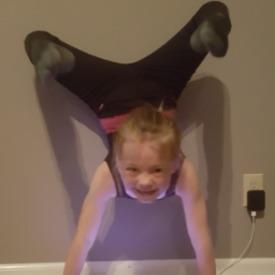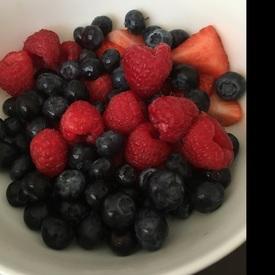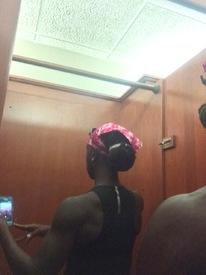Losing Weight is NOT that simple..imo..

AspenDan
Posts: 703 Member
I've lost 40lbs about, so what I'm doing is working for me, I'm not complaining. But I get frustrated when I see a forums response like "Just eat less calories than you're burning...are you sure you're weighing accurately?" This seems patronizing, and also is flawed in a couple ways.
First, it's really difficult to just know how many calories you're burning..I don't have a butt stamp indicating that number, or even an owners manual, so the best I've got is taking blood tests and running fitness experiments (which simply isn't practical for an average person), OR using an online calculator/guestimator, which let's be honest, has a HUGE margin of error. Some sites I have a 2500 TDE, some say 3500..
Secondly, its really difficult to just know how many calories you're eating..Have you googled "food label accuracy"? That stuff can often be 20%-40% wrong..not even to mention that some things just cant be calculated accurately..ie. one steak from a package could be hugely more caloric-ly dense simply due to a higher fat content.
My point is, even if you follow all the right steps, you could easily have an over estimated TDE (by no fault of your own), and eat far underestimated calories (by no fault of your own), and simply not lose weight. Thus "just eat less than you burn" is fairly useless.
If I had any advice to offer to people struggling, I'd say it's all about trial and error, which can be frustratingly slow. You gotta try something, whether its working out more, or trying to stay under a certain amount-ish of calories, and see how that goes for a few weeks. If that doesn't work, change it up, and try again. Patience has been my biggest struggle but probably my greatest ally during the last few months, and I know that once you find your groove you're gonna kick your fitness goals right in the somewhat large *kitten*. Rant over..
First, it's really difficult to just know how many calories you're burning..I don't have a butt stamp indicating that number, or even an owners manual, so the best I've got is taking blood tests and running fitness experiments (which simply isn't practical for an average person), OR using an online calculator/guestimator, which let's be honest, has a HUGE margin of error. Some sites I have a 2500 TDE, some say 3500..
Secondly, its really difficult to just know how many calories you're eating..Have you googled "food label accuracy"? That stuff can often be 20%-40% wrong..not even to mention that some things just cant be calculated accurately..ie. one steak from a package could be hugely more caloric-ly dense simply due to a higher fat content.
My point is, even if you follow all the right steps, you could easily have an over estimated TDE (by no fault of your own), and eat far underestimated calories (by no fault of your own), and simply not lose weight. Thus "just eat less than you burn" is fairly useless.
If I had any advice to offer to people struggling, I'd say it's all about trial and error, which can be frustratingly slow. You gotta try something, whether its working out more, or trying to stay under a certain amount-ish of calories, and see how that goes for a few weeks. If that doesn't work, change it up, and try again. Patience has been my biggest struggle but probably my greatest ally during the last few months, and I know that once you find your groove you're gonna kick your fitness goals right in the somewhat large *kitten*. Rant over..
0
Replies
-
I have lost 75lbs and it pretty much IS a guessing game. The trick is to have an EDUCATED guess. That is also why people suggest weighing EVERYTHING and measuring liquids, use online calculators knowing they are flawed and underestimate calorie burn. I mean really... it CAN be that simple to understand the science behind losing weight. The hardest part is just sticking to your goal.0
-
@ogmomma2012 I agree. Awesome job on the 75lbs down. I think that weightloss is simple in theory, but very much more complicated in practice. Would you agree?1
-
You are 100% right. It is trial and error. I didn't lose at my desired rate for a full 3 months. That's when I went back and calculated my loss against logged calories and I got a much better idea of calories out.
For some people, it is fairly easy. And if it ain't broke, don't fix it.0 -
danieltsmoke wrote: »I've lost 40lbs about, so what I'm doing is working for me, I'm not complaining. But I get frustrated when I see a forums response like "Just eat less calories than you're burning...are you sure you're weighing accurately?" This seems patronizing, and also is flawed in a couple ways.
First, it's really difficult to just know how many calories you're burning..I don't have a butt stamp indicating that number, or even an owners manual, so the best I've got is taking blood tests and running fitness experiments (which simply isn't practical for an average person), OR using an online calculator/guestimator, which let's be honest, has a HUGE margin of error. Some sites I have a 2500 TDE, some say 3500..
Secondly, its really difficult to just know how many calories you're eating..Have you googled "food label accuracy"? That stuff can often be 20%-40% wrong..not even to mention that some things just cant be calculated accurately..ie. one steak from a package could be hugely more caloric-ly dense simply due to a higher fat content.
My point is, even if you follow all the right steps, you could easily have an over estimated TDE (by no fault of your own), and eat far underestimated calories (by no fault of your own), and simply not lose weight. Thus "just eat less than you burn" is fairly useless.
If I had any advice to offer to people struggling, I'd say it's all about trial and error, which can be frustratingly slow. You gotta try something, whether its working out more, or trying to stay under a certain amount-ish of calories, and see how that goes for a few weeks. If that doesn't work, change it up, and try again. Patience has been my biggest struggle but probably my greatest ally during the last few months, and I know that once you find your groove you're gonna kick your fitness goals right in the somewhat large *kitten*. Rant over..
This part - no. If you use a digital food scale, and weigh all solid foods, you can be very accurate with calorie counting. Even when eating in a restaurant, you can usually find nutrition information, and if not, unless you're eating out very frequently, a close estimate should be good enough.
As far as TDEE - MFP doesn't use that. It starts with BMR, which is easier to figure. Then it goes by activity level, which is just what you put in yourself, dependent on how much you move during the day. Above that, you put in your exercise calories. Yes, exercise machines and MFP both estimate high for that number - but that can be easily remedied with a heart rate monitor with chest strap, which is pretty accurate, or a Fitbit, which is also pretty accurate. Even if you use a TDEE calculator, the accuracy of it depends on the information you put in.
The best indicator? Whether or not you are losing weight, once you are weighing all food, sticking to the calorie deficit and logging honestly. If you are losing weight, you are at the right numbers for you. If not, adjustments need to be made. That's how it works.
No one said it was easy.0 -
Great post! I agree completely. It is a lot of trial and error because these things are all estimates, and not very accurate ones in many cases.0
-
I am not agreeing with you
I find it simple
lost 101 pounds in 9 months
I just go simple about it and dont make a point of weighing my food and tracking it. And checking on the USDA site when i doubt about entrees
It will always be not totally 100% accurate..but with a good deficit you still lose.
I just dont make a big deal of it. Something i have to do to get rit of my excess weight0 -
danieltsmoke wrote: »I've lost 40lbs about, so what I'm doing is working for me, I'm not complaining. But I get frustrated when I see a forums response like "Just eat less calories than you're burning...are you sure you're weighing accurately?" This seems patronizing, and also is flawed in a couple ways.
First, it's really difficult to just know how many calories you're burning..I don't have a butt stamp indicating that number, or even an owners manual, so the best I've got is taking blood tests and running fitness experiments (which simply isn't practical for an average person), OR using an online calculator/guestimator, which let's be honest, has a HUGE margin of error. Some sites I have a 2500 TDE, some say 3500..
Secondly, its really difficult to just know how many calories you're eating..Have you googled "food label accuracy"? That stuff can often be 20%-40% wrong..not even to mention that some things just cant be calculated accurately..ie. one steak from a package could be hugely more caloric-ly dense simply due to a higher fat content.
My point is, even if you follow all the right steps, you could easily have an over estimated TDE (by no fault of your own), and eat far underestimated calories (by no fault of your own), and simply not lose weight. Thus "just eat less than you burn" is fairly useless.
If I had any advice to offer to people struggling, I'd say it's all about trial and error, which can be frustratingly slow. You gotta try something, whether its working out more, or trying to stay under a certain amount-ish of calories, and see how that goes for a few weeks. If that doesn't work, change it up, and try again. Patience has been my biggest struggle but probably my greatest ally during the last few months, and I know that once you find your groove you're gonna kick your fitness goals right in the somewhat large *kitten*. Rant over..
This is my main advice to people. Patience. I think for some it seems difficult because there's a lot of trial and error and most have unrealistic expectations. I don't think "eat less than you burn" is useless because it's what I did and I'm losing...albeit slowly. And only slowly because I had to learn how much I burn, how much less food to lose, etc. People give up way too quickly, people think because they "ate good/clean/etc" for a week and worked out for a couple of weeks so therefore they should have lost xxx amount of weight by now.
I agree with a lot of what you said BUT to say cico doesn't work... that's wrong.
0 -
"Eat less than you burn" is the only way to lose weight (short of dehydration or amputation).danieltsmoke wrote:I get frustrated when I see a forums response like "Just eat less (sic) calories than you're burning...
are you sure you're weighing accurately?"
... even if you follow all the right steps, you could easily have an over estimated TDEE (by no fault of your own),
and eat far underestimated calories (by no fault of your own), and simply not lose weight.
Thus "just eat less than you burn" is fairly useless.
Figuring out how much of each is somewhat of a guessing game.
Weighing & measuring food is the best way we mere mortals have to get a pretty good grip on CI.
The 2 things you pointed out are the reasons my dietician & doctor (endocrinologist specializing in weight issues)
told me not to eat exercise calories.
People usually underestimate what they eat,
and machines (including MFP) usually overestimate calories burned.
.
It's very simple, but not necessarily easy.daniel wrote:weight loss is simple in theory, but very much more complicated in practice0 -
A deficit is a deficit. I think all the variables aside, it is easy to tell when you are in a deficit. To me, saying I want to lose 1 lb per week is just an arbitrary race we put ourselves up to. This doesn't have to be a race.0
-
The rough estimates of what you burn and what you eat are enough. I did an experiment and found that I lost a little too quickly eating back 50% of exercise calories and a little too slowly eating them all. (4+ weeks each time)
If you have a food scale, you're golden. Seasonal variations in fruit or whatever aren't going to hold you back.
TDEE--every site seems to have their own definitions of the activity levels, and of course you may deviate from the norm anyway. That's why you use it as a baseline and if things don't work the way they should, you adjust.
I've lost 66 pounds. It was simple. Easy? Not always.0 -
This content has been removed.
-
barbecuesauce wrote: »The rough estimates of what you burn and what you eat are enough. I did an experiment and found that I lost a little too quickly eating back 50% of exercise calories and a little too slowly eating them all. (4+ weeks each time)
I
I've never heard of anyone complaining they were losing weight too quickly!1 -
This content has been removed.
-
Yes, yes and yes. Amen and alleluia.
Everyone is different, has different tastes, challenges, etc. There is no One Size Fits All advice for the best way to lose.
We all have to try the things that interest us, see how they work, tweak and adjust as necessary. My way is best for me, your way is best for you and that guy over there has to find out what is best for him.
And PATIENCE is required. It comes right after motivation, determination and commitment. If you aren't a patient person, you best go to the patience store and buy some because you're going to need it. 0
0 -
This part - no. If you use a digital food scale, and weigh all solid foods, you can be very accurate with calorie counting. Even when eating in a restaurant, you can usually find nutrition information, and if not, unless you're eating out very frequently, a close estimate should be good enough.
At restaurants, you have to hope that whoever is cooking makes the food exactly the same way, using the same portion sizes, every time. And he’s right that cuts of meat, for example, can vary. The nutrition facts are just an average. And manufacturers can use several different ways of calculating calories for food labels. The simplest but least accurate is 4×(grams of carbs + grams of protein) + 9×(grams of fat), but there are other ways. And then there are rounding rules, and allowable variation in calorie content of foods, so the label may not be accurate. It can add up.
All you can do is log as accurately as you can, and then adjust your goals later if it isn’t working.0 -
yellowantphil wrote: »This part - no. If you use a digital food scale, and weigh all solid foods, you can be very accurate with calorie counting. Even when eating in a restaurant, you can usually find nutrition information, and if not, unless you're eating out very frequently, a close estimate should be good enough.
At restaurants, you have to hope that whoever is cooking makes the food exactly the same way, using the same portion sizes, every time. And he’s right that cuts of meat, for example, can vary. The nutrition facts are just an average. And manufacturers can use several different ways of calculating calories for food labels. The simplest but least accurate is 4×(grams of carbs + grams of protein) + 9×(grams of fat), but there are other ways. And then there are rounding rules, and allowable variation in calorie content of foods, so the label may not be accurate. It can add up.
All you can do is log as accurately as you can, and then adjust your goals later if it isn’t working.
Which is exactly what I said.0 -
I have just the point of few..i i can moan, cry all i want..it wont change a thing. I have to do it and this is for me the way to do it.
Weighing counting and tracking. and it is something i do happily because i see results.
When i would think ...gosh this is hard...it will make it harder for me.
But i am in general that annoying girl that is always happy and positive about these kinda things.
I just didn't plan to make it hard on myself so i dont. 0
0 -
barbecuesauce wrote: »The rough estimates of what you burn and what you eat are enough. I did an experiment and found that I lost a little too quickly eating back 50% of exercise calories and a little too slowly eating them all. (4+ weeks each time)
I
I've never heard of anyone complaining they were losing weight too quickly!
I mean faster than what I had set MFP to.0 -
yellowantphil wrote: »This part - no. If you use a digital food scale, and weigh all solid foods, you can be very accurate with calorie counting. Even when eating in a restaurant, you can usually find nutrition information, and if not, unless you're eating out very frequently, a close estimate should be good enough.
At restaurants, you have to hope that whoever is cooking makes the food exactly the same way, using the same portion sizes, every time. And he’s right that cuts of meat, for example, can vary. The nutrition facts are just an average. And manufacturers can use several different ways of calculating calories for food labels. The simplest but least accurate is 4×(grams of carbs + grams of protein) + 9×(grams of fat), but there are other ways. And then there are rounding rules, and allowable variation in calorie content of foods, so the label may not be accurate. It can add up.
All you can do is log as accurately as you can, and then adjust your goals later if it isn’t working.
lol i dont even look or think about that...
i accept that i go out..get more calories than i need that day, enjoy the hell out of it and move on.
0 -
-
barbecuesauce wrote: »The rough estimates of what you burn and what you eat are enough. I did an experiment and found that I lost a little too quickly eating back 50% of exercise calories and a little too slowly eating them all. (4+ weeks each time)
I
I've never heard of anyone complaining they were losing weight too quickly!
If you don't want to limit the amount of muscle you lose you do.
+1
But that's really a message that the OP needs to absorb. 900 calories a day and we're just feeding his threads.0 -
yellowantphil wrote: »
If you are weighing all of your food at home, and eating most of your meals there, you're going to be pretty accurate. Some people actually take a food scale out to eat with them, and weigh food at the restaurant. It's possible to be really accurate. Even with the occasional meal out, if you are using a food scale, you are going to be accurate.0 -
Your calorie intake is 900 calories a day. smh0
-
Once I got a digital food scale, that's when the weight came off more easier. Only time I estimate is when we go out and I've done fairly well with that.
If you make it harder it will be harder.0 -
It is simple. Figuring out the input and output really isn't that hard. Yes, they are estimates, but if you are honest with your exercise effort and with your food intake, you will lose as the online calculators and nutrition labels aren't all that off. The rate at which you lose may not be steady, but you will lose. Why do people like to make it more complicated than it is? I've lost around 70 lbs without ever using a food scale, ever feeling hungry or deprived, eating out on a regular basis, and having a good time getting involved in various sports.
Yes, patience is required. With that I agree. But saying its complicated doesn't help others.0 -
danieltsmoke wrote: »@ogmomma2012 I agree. Awesome job on the 75lbs down. I think that weightloss is simple in theory, but very much more complicated in practice. Would you agree?
Complicated would be different for everyone. It's complicated for someone like me who has binge issues. But until I get closer to my goal weight, losing weight is only hard because I am standing in my own way (which, BTW, is why I have a fat picture in my icon, because it's motivation to never go back to that) and it's not the fault of the food I choose to put in my mouth, or the exercise I have chosen not to do. 0
0 -
yellowantphil wrote: »
If you are weighing all of your food at home, and eating most of your meals there, you're going to be pretty accurate. Some people actually take a food scale out to eat with them, and weigh food at the restaurant. It's possible to be really accurate. Even with the occasional meal out, if you are using a food scale, you are going to be accurate.
Accurate enough, sure. And I imagine that many of the errors I quoted average out eventually.0 -
OP why are you eating only 900 calories??
That's is never a good ideal for a man, you should at least be eating 1600.0 -
Listened to your rant, but found it wanting so disagree with you. Its straightforward if you take the time to learn about weight loss, its more difficult to carry it out in practice.
1. How much you are burning. Exercise is really about fitness/health and calorie burns are secondary. You cna estimate burns reasonably, but its an estimate an nothing to get overly concerned about. MFP figures at 50% and adjust seems to work for many people.
2. Hard to estimate food calories? not if you weigh using scales.
Take responsibility, do it properly and you can get a pretty decent figure as most people seem to have managed who lose weight. Blaming other people is lame. So I think your rant is a poor one and does not have much foundation if any. Understanding basci cicio and using some common sense means patience and adjusting is all part of anyones journey, which isnt exactly some startling revelation.
0 -
In the end it does still teach you about eating too much. Even if inaccurate, in the end you should lose weight if you UNDERSTAND that eating too much will cause weight gain.0
This discussion has been closed.
Categories
- All Categories
- 1.4M Health, Wellness and Goals
- 398.2K Introduce Yourself
- 44.7K Getting Started
- 261K Health and Weight Loss
- 176.4K Food and Nutrition
- 47.7K Recipes
- 233K Fitness and Exercise
- 462 Sleep, Mindfulness and Overall Wellness
- 6.5K Goal: Maintaining Weight
- 8.7K Goal: Gaining Weight and Body Building
- 153.5K Motivation and Support
- 8.4K Challenges
- 1.4K Debate Club
- 96.5K Chit-Chat
- 2.6K Fun and Games
- 4.8K MyFitnessPal Information
- 12 News and Announcements
- 21 MyFitnessPal Academy
- 1.6K Feature Suggestions and Ideas
- 3.2K MyFitnessPal Tech Support Questions
















